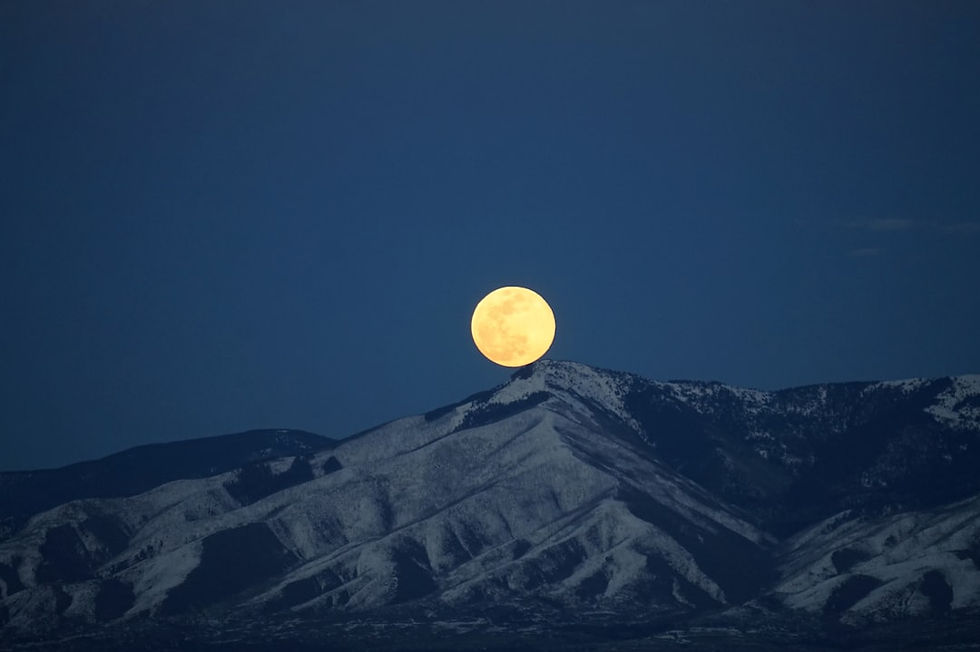The Tao of Adventure: Embracing the Flow of the Unknown
- Simon Buck

- Jan 29, 2025
- 4 min read
In a world that craves control, planning, and certainty, adventure stands as a sacred rebellion. It is the art of surrendering to the unknown, trusting the unfolding of life, and embracing every twist and turn with an open heart. This is the Tao of Adventure—a way of being, not just a thing we do.

The Call of the Wild and the Flow of the Tao
The Tao, or “The Way,” is an ancient Chinese philosophy rooted in harmony, spontaneity, and effortless action (Wu Wei). It teaches us to move with the natural currents of life rather than resist them. Adventure, in its truest form, is the physical and spiritual embodiment of this philosophy. It is not about forcing experiences but about allowing them to happen, responding fluidly rather than reacting rigidly.
When we embark on an adventure, whether it’s a journey into the mountains, a road trip with no destination, or a deep dive into an uncharted passion, we are choosing to step into the unknown. But rather than controlling every detail, we learn to trust the flow, adapting as we go.
Wu Wei: The Effortless Action of Adventure
Wu Wei is a fundamental concept of Taoism—often misunderstood as passivity, but in reality, it is the highest form of action. It is action in harmony with the natural rhythms of life, where effort is replaced by presence.
In adventure, this means:
• Not forcing a plan when the road ahead shifts.
• Accepting the storm instead of cursing it.
• Moving with the landscape instead of against it.
• Trusting intuition over rigid logic.
A true adventurer does not resist change but dances with it.
Letting Go of Expectations
One of the biggest obstacles to adventure is expectation. When we cling too tightly to an outcome—be it reaching the peak of a mountain, completing a journey within a set time, or expecting a perfect experience—we lose sight of the moment. The Tao of Adventure teaches us to drop attachment and immerse ourselves in the unfolding experience.
Imagine hiking a trail with the sole goal of reaching a summit. If the weather turns, you might feel frustration and disappointment.
But if you embrace the Tao of Adventure, you might discover something unexpected—a hidden valley, a spontaneous conversation with a stranger, or a lesson in patience. The summit is never the true reward—the journey itself is.
Adversity as a Teacher
Adventure is not always easy, nor should it be. Challenges—whether they come in the form of physical exhaustion, getting lost, or unexpected obstacles—are opportunities to practice flow, resilience, and presence.
Taoism teaches that the river does not curse the rocks in its path; it flows around them. When an adventurer faces difficulty, they do not fight it with resistance but adapt and move forward with grace. In doing so, the experience transforms from struggle into something sacred.
Embracing the Beginner’s Mind
Another Taoist principle, Shoshin (borrowed from Zen), refers to the “beginner’s mind”—a state of openness, curiosity, and humility. The best adventurers are not those who think they know it all but those who step into each journey as if it were their first.
A beginner’s mind allows us to:
• See the world with fresh eyes, even in familiar places.
• Let go of ego and embrace learning.
• Remain open to new paths and possibilities.
No matter how many adventures you’ve had, each one is new. Each sunrise, each footstep, each moment is a unique and fleeting experience. When we adopt the beginner’s mind, we remain in awe of life itself.
Simplicity and Spontaneity
The Tao of Adventure teaches that the best journeys are often the simplest ones. The less we carry—physically, mentally, and emotionally—the freer we are.
Taoist sages lived by the principle of simplicity, and so do great adventurers. They do not need luxury, excess, or detailed itineraries. Instead, they travel light, embrace spontaneity, and trust in the unfolding of the journey.
Spontaneity is the heartbeat of adventure. It is the willingness to take an unmarked trail, to follow intuition, and to say “yes” to the unknown. Some of the best experiences happen when we release the need for control and allow life to surprise us.
Returning to the Present Moment
Perhaps the greatest lesson the Tao of Adventure teaches is the power of presence.
In modern life, we are often trapped in the past or fixated on the future. Adventure pulls us back to the now. It demands our attention—whether it’s navigating a trail, climbing a rock face, or standing in awe of a vast horizon.
To adventure is to meditate in motion, to be fully immersed in the present, unburdened by regret or anxiety. This is the essence of the Tao—simply being, simply moving, simply living.
The Adventure of Everyday Life
The Tao of Adventure is not reserved for epic journeys or far-off places. It is a way of life.
• Walking a familiar street with new awareness is an adventure.
• Saying “yes” to something uncertain is an adventure.
• Trusting your intuition and taking the leap is an adventure.
Every moment holds the potential for discovery if we are open to it. The Tao of Adventure is not about seeking excitement; it is about awakening to the wonder that already exists around us.
Conclusion: Becoming the River
To live the Tao of Adventure is to become like water—flowing, adaptable, and unresisting. It is to embrace uncertainty with an open heart, to let go of rigid plans, and to trust the natural unfolding of life.
Whether you are trekking through mountains, wandering through cities, or simply navigating the adventure of daily life, remember: The way is not something you find. The way is something you are.
Step forward, trust the journey, and let the adventure unfold.

.png)






Comments